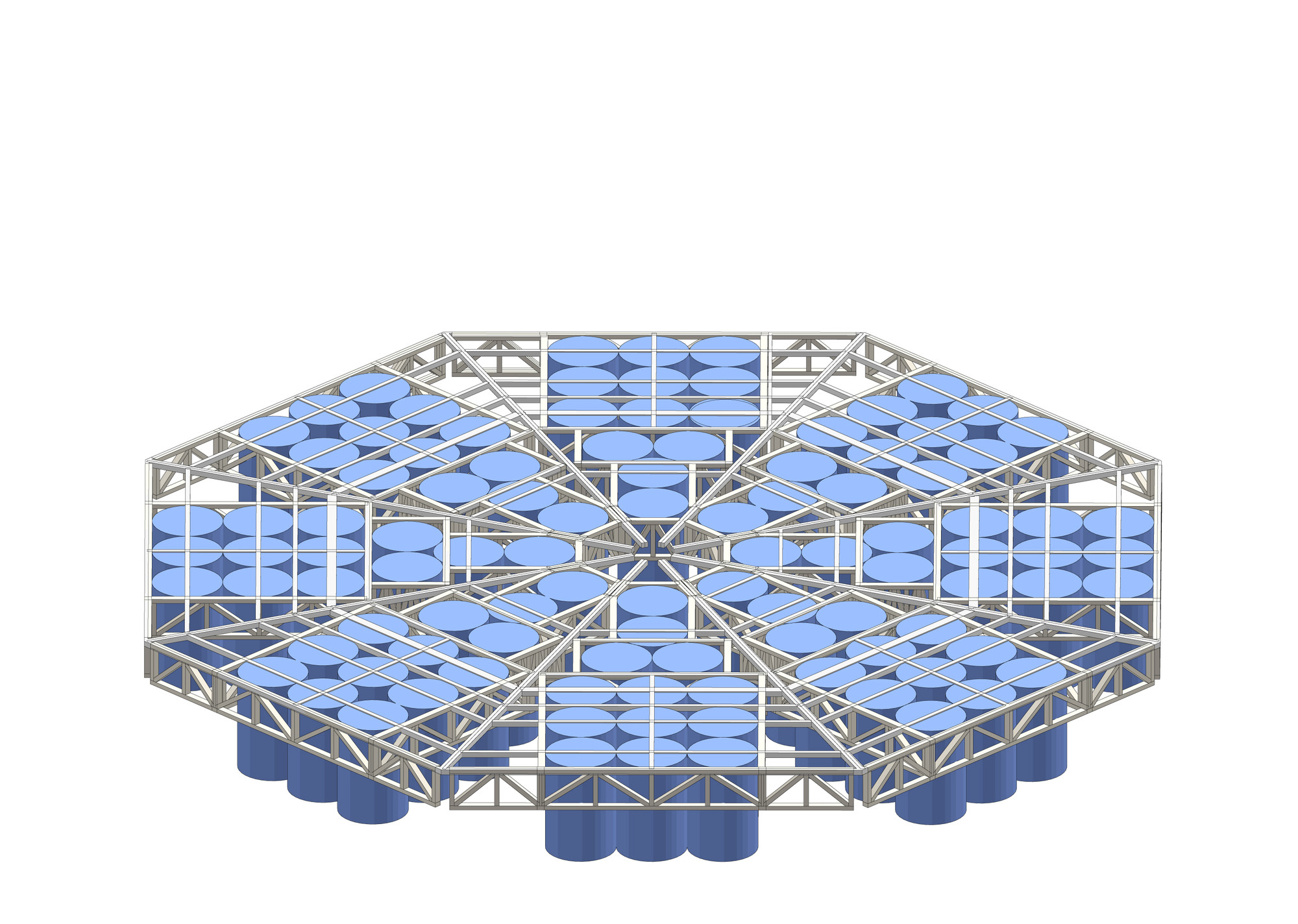
With the earth’s population increasing at an exponential rate, sustainable agriculture and access to clean water are becoming desperately important. Cristiana Favretto and Antonio Giraridi of Studiomobile recognize this and have proposed a solution. Dubbed the Jellyfish Barge for its shape and translucency, this floating greenhouse is capable of growing its own food hydroponically and producing up to 150 liters of fresh drinking water per day. Even more beneficial is its low-cost, easy-to-assemble design that can be implemented in a variety of locations. Learn more about how this fascinating project works, after the break.
The Jellyfish Barge was conceived as a 70 square meter octagon, floating atop recycled plastic drums. These drums are attached directly to the wooden decking above, and are held steady by reticular wooden beams along the radii of the octagon.

Fresh water comes from the solar stills located on seven sides of the barges. These devices, designed by scientist Paolo Franeschetti, filter water in much the same way that the earth’s ecosystem creates rainwater. The sun’s heat causes tainted water in the stills to evaporate. This water vapor is sucked into a tank chilled by the seawater on which the barge is floating. This temperature change causes the water to condense, after which it is pumped into a storage tank. The electricity needed to power the necessary fan and the pumps comes from photovoltaic panels attached to the barge roof.

The majority of the barge’s space is taken up by a covered greenhouse space. The interior houses scaffolding on which hydroponic gardening can take place. Hydroponics, the act of growing plants using only water and minerals, uses 70% less water than traditional agriculture. The Jellyfish Barge improves on this efficiency by using 15% seawater in its growing solution, cutting down on the amount of water taken from the freshwater supply of the Barge's solar stills.


The Jellyfish Barge was designed to be small in size, specifically for installation in places with a limited supply of materials. Despite this, it is capable of supporting the food and water needs of up to two families. The Barge is also modular, and can be combined with others of its kind to provide food for entire communities.
The Jellyfish Barge is produced by Pnat, a spin-off of the University of Florence.



















